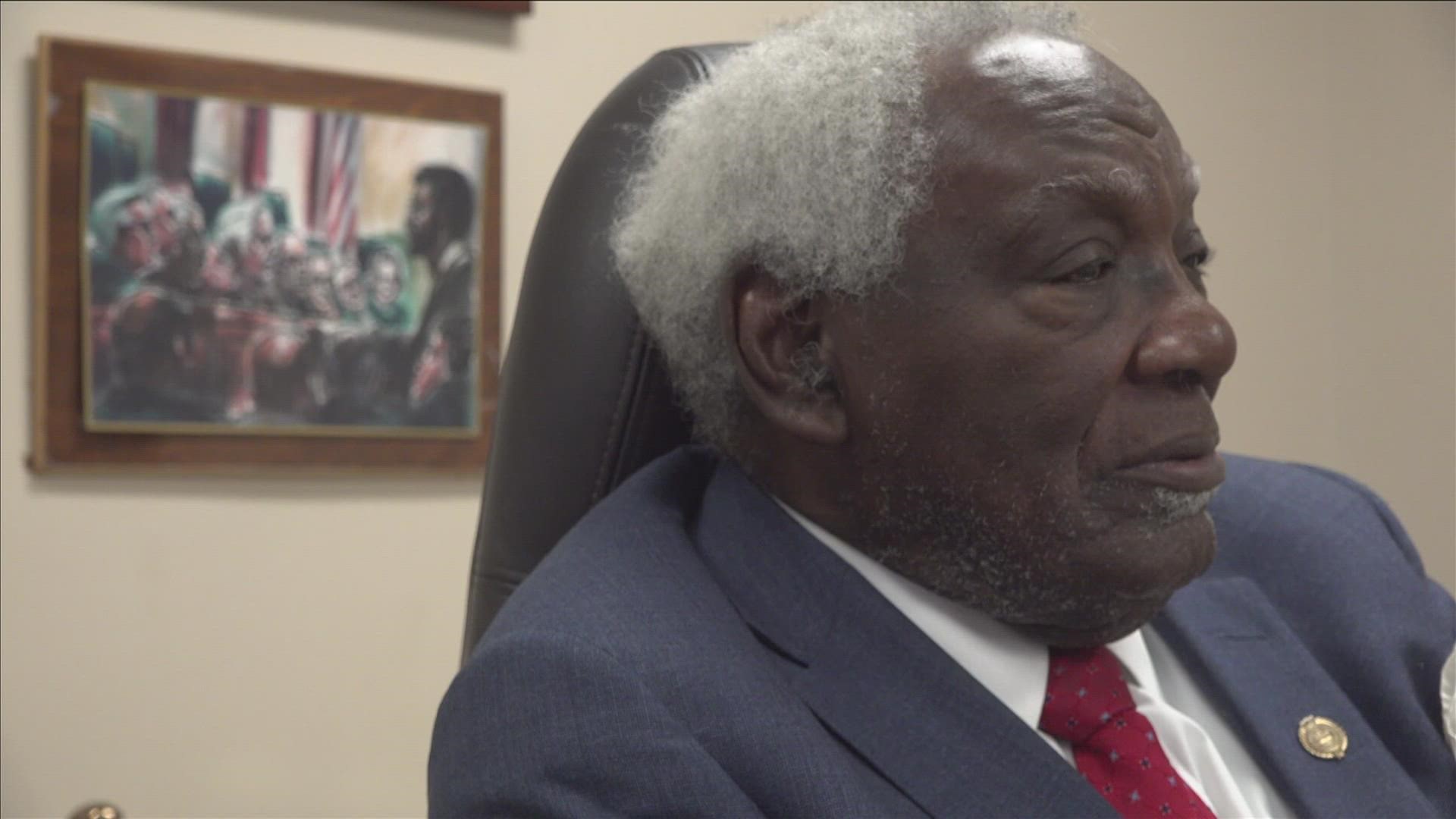MEMPHIS, Tenn. — Memphis attorney and civil rights leader Walter Bailey can’t help but notice the similarities between the death of 29-year-old Tyre Nichols and the 1971 death of 17-year-old Elton Hayes.
“(In both cases) you’ve got pursuit by law enforcement officers against alleged traffic violators and the end result being tragic, when it shouldn’t be,” Bailey said.
Hayes was beaten to death in a ditch by Memphis Police officers and Shelby County Sheriff deputies after a chase that ended at Highway 78 and Stepherson in Capleville on October 15, 1971.
“They were (both) bludgeoned to death,” Bailey said. “Sadistically bludgeoned to death, it appears.”
The long-time Shelby County Commissioner was part of the fight to arrest the officers responsible for Hayes’ death. It was two years before eight law enforcement officers involved (four charged with First Degree Murder, four charged with Assault With Intent to Commit Murder) stood trial.
They would all be acquitted.
“Riots in the street, disorderly response by angered citizens,” Bailey said, describing the aftermath. “And that was shortly after the death of Dr. (Martin Luther) King Jr. so we were already sitting on a powder keg.”
Those protests eventually led to wide-spread reform within local law enforcement. Winslow “Buddy” Chapman partnered with the U.S. Department of Justice to implement those changes throughout MPD, serving as director from 1976-1983.
“They cannot be allowed to be a occupying force,” Chapman said, discussing appropriate use of force and community relations. “You can’t stop the old lady on the street because she stepped out in the street when the yellow light was on.”
Bailey said that while Nichols’ death is evidence that more work needs to be done to improve MPD, he says the climate in Memphis is much different than the one in 1971.
He sent Police Chief C.J. Davis a letter Tuesday, thanking her for how she has handled the investigation into Nichols’ death so far, and the department’s swiftness in firing five officers involved.
“I commend Chief Davis,” Bailey said. “The command structure at the police department showed courage. It didn't equivocate, it moved as it felt appropriate. It showed leadership.”
However, Chapman, currently the executive director for CrimeStoppers of Memphis and Shelby County, said the trust between the police department and the people it is supposed to protect, was deteriorating even before Nichols’ death.
“When people in the community see a police car roll past, do they view that as somebody that’s here to help me or somebody that’s here to harass me,” he said. “Is (an officer) viewed as somebody that’s making my life better or is he viewed as somebody I’m afraid of?"
According to his family, Nichols was “scared for his life” when officers pulled him over on January 7.
Chapman says that MPD faces a long road to rebuild that trust with the public.
And Bailey agrees.
“There's no reason that a traffic pursuit by police officers should result in death,” he said.

